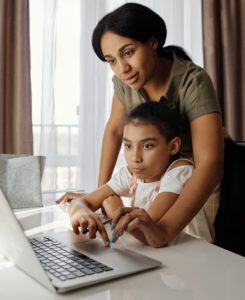Parental Tips on Cybersecurity and Protecting Kids
 While we, as parents, use the internet to find new sports results, Heart Bingo Promo Code, or streaming esports tournaments, we do have to consider which sites our children should be allowed to visit. Kids’ safety is every parent’s number one priority, but at the same time, it is very important that kids don’t get influenced by bad role models. With the sophisticated nature of cybercrimes and the vast sea of content that exists online, it is perfectly understandable that parents have concerns about their kids using the Internet.
While we, as parents, use the internet to find new sports results, Heart Bingo Promo Code, or streaming esports tournaments, we do have to consider which sites our children should be allowed to visit. Kids’ safety is every parent’s number one priority, but at the same time, it is very important that kids don’t get influenced by bad role models. With the sophisticated nature of cybercrimes and the vast sea of content that exists online, it is perfectly understandable that parents have concerns about their kids using the Internet.
That being said, kids are curious by nature and likely to click on all sorts of buttons when browsing the web. Also, they listen to their peers, so if they watch something, your kids will want to watch it too, despite if it’s bad or good for them.
So, here are some tips on how to handle these situations.
Explain to them the importance of identity
 One of the main issues with kids using computers to go online is cybersecurity. A large portion of sensitive data can be accessed via email, so keeping your personal information safe should be a high priority.
One of the main issues with kids using computers to go online is cybersecurity. A large portion of sensitive data can be accessed via email, so keeping your personal information safe should be a high priority.
Explain to your kids why it can be a problem if they visit just any site, and tell them which sites they are allowed to use. Let them know they are obligated to tell you if they want to visit an unknown site so that you can check it first, and check internet history to see if they are honouring their part of the agreement.
This is important because many websites collect personal information and there are many phishing scams present on platforms that lack security. So spend some time on those websites to make sure there are no troublesome pop-ups, and make sure your antivirus software is up and running.
Learn about the content they wish to browse
 If your kids wish to visit a website you never heard of, or even if they wish to watch something on a site like YouTube, make sure you see what that content is about. It can be something that can act as a bad example, even if the original intention of the content was the exact opposite.
If your kids wish to visit a website you never heard of, or even if they wish to watch something on a site like YouTube, make sure you see what that content is about. It can be something that can act as a bad example, even if the original intention of the content was the exact opposite.
Kids might not be able to process satirical work or know the full consequences of the action they see online. Talk to them about what they are watching and why they like it, if they seem to understand when something is bad, then it’s okay, if they don’t you will have to educate them.
Backups and VPNs
If you don’t think your own internet provider has decent restrictions when it comes to online content, you can always get a reliable VPN. This way you calibrate your connection to run through a state that has more restrictive laws, and that way you won’t have to worry as much about problematic content, and security at the same time.
Furthermore, it is also important to have a backup of your sensitive and important information, just in case your PC storage becomes compromised and corrupted. Also if your kids need to sign up somewhere, create a separate email for them that you can monitor. Make sure that email is logged in while they are using the PC.
